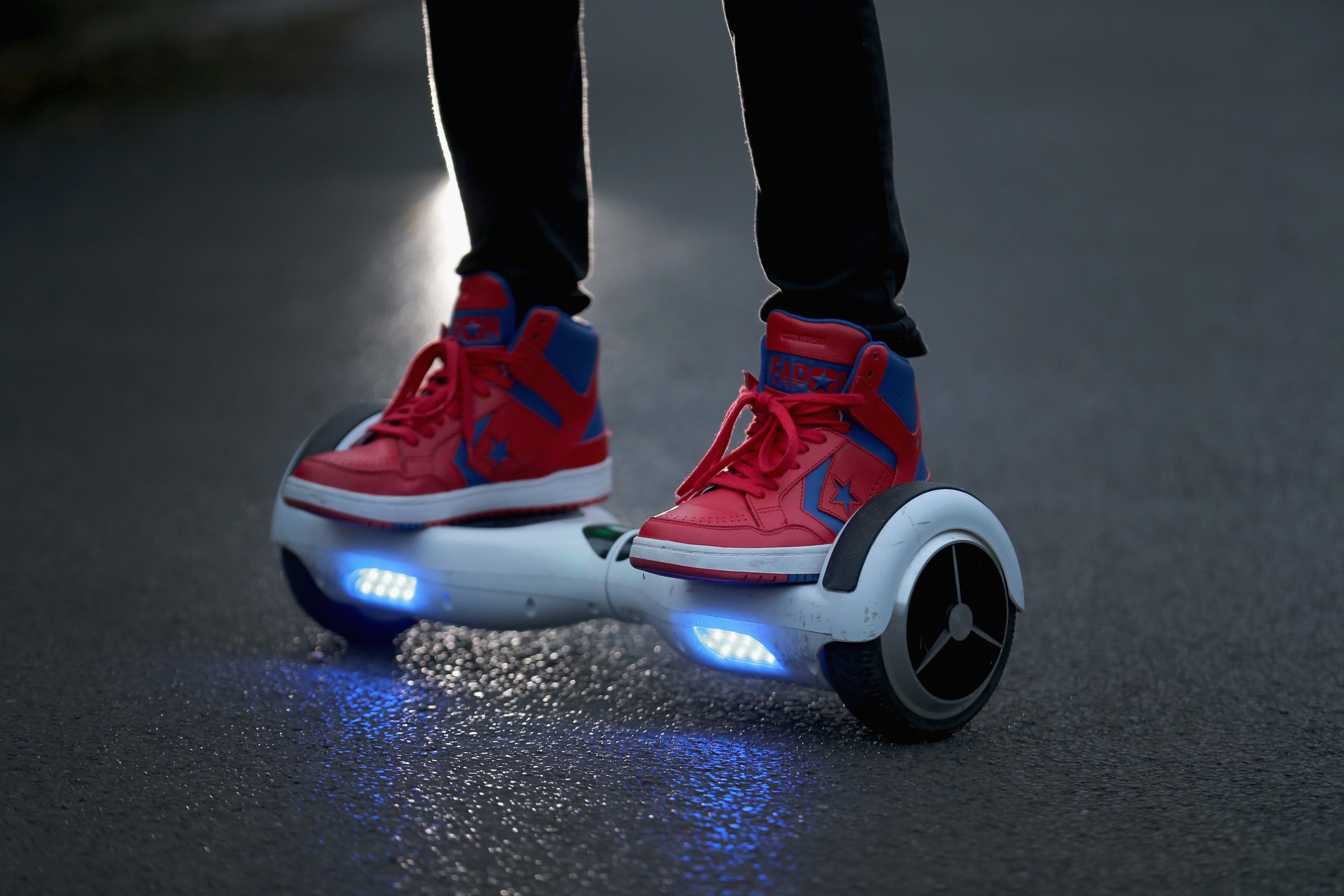
Delta announced Thursday that it would ban hoverboards from flights, the latest airline to do so based on risks associated with the devices’ lithium batteries.
Delta says it made the decision to prohibit travelers from bringing hoverboards and all lithium battery-powered self-balancing transportation devices on flights out of concern for employee and passenger safety. Airlines have raised concerns that the batteries can catch on fire if the hoverboard is damaged or defective.
“Poorly labeled, powerful lithium-ion batteries powering hoverboards are the issue,” Delta says in a statement about the decision. “Delta reviewed hoverboard product specifications and found that manufacturers do not consistently provide detail about the size or power of their lithium-ion batteries.”
Delta says it found that the devices often contained battery varieties above the 160 watt hour limit that’s permitted on flights. “While occurrences are uncommon, these batteries can spontaneously overheat and pose a fire hazard risk,” Delta says.
The new policy goes into effect on Dec. 11.
Like Delta, Hawaiian Airlines and Jet Blue also do not allow hoverboards on the plane. According to CNBC, United allows hoverboards in carry-on and checked luggage if they meet size limits and FAA guidelines. The Wall Street Journal reports that airline groups like the International Civil Aviation Organization (ICAO) are assessing the risks of carrying hoverboards and that the group is working to develop an industry standard.
More Must-Reads from TIME
- Donald Trump Is TIME's 2024 Person of the Year
- Why We Chose Trump as Person of the Year
- Is Intermittent Fasting Good or Bad for You?
- The 100 Must-Read Books of 2024
- The 20 Best Christmas TV Episodes
- Column: If Optimism Feels Ridiculous Now, Try Hope
- The Future of Climate Action Is Trade Policy
- Merle Bombardieri Is Helping People Make the Baby Decision
Contact us at letters@time.com